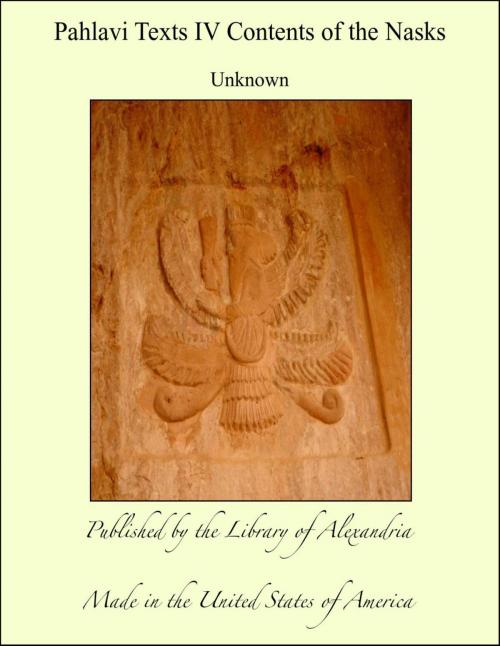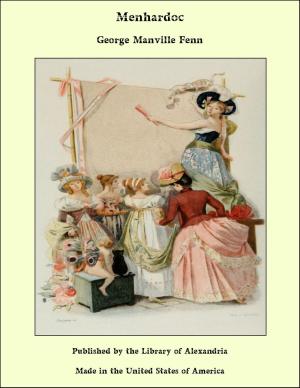Pahlavi Texts IV Contents of the Nasks
Nonfiction, Religion & Spirituality, New Age, History, Fiction & Literature| Author: | Unknown | ISBN: | 9781465573773 |
| Publisher: | Library of Alexandria | Publication: | March 8, 2015 |
| Imprint: | Language: | English |
| Author: | Unknown |
| ISBN: | 9781465573773 |
| Publisher: | Library of Alexandria |
| Publication: | March 8, 2015 |
| Imprint: | |
| Language: | English |
ATTENTIVE readers of the Sacred Books of the East have had ample opportunities of becoming acquainted with the Zoroastrian scriptures, so far as these have been preserved by the Parsis. In vols. iv, xxiii, and xxxi they have translations of all the texts extant in the original language of the Avesta, excepting a few fragments which are not yet collected. And in vols. v, xviii, and xxiv they have translations of later Pahlavi texts, showing how faithfully the old doctrines and legends were handed down by the priests of Sasanian times to their immediate successors. But they will also have noticed that the translators of these texts are well aware of the fact that the texts themselves are mere fragments of the religious writings of the Zoroastrians, which owe their preservation to the circumstance that they were those portions most usually committed to memory by the priesthood, such as the liturgy, sacred myths, and ceremonial laws. The object of the present volume is to add to those fragments all the accessible information, that can be collected from Irânian sources, regarding the contents of the whole Zoroastrian literature in Sasanian times.
ATTENTIVE readers of the Sacred Books of the East have had ample opportunities of becoming acquainted with the Zoroastrian scriptures, so far as these have been preserved by the Parsis. In vols. iv, xxiii, and xxxi they have translations of all the texts extant in the original language of the Avesta, excepting a few fragments which are not yet collected. And in vols. v, xviii, and xxiv they have translations of later Pahlavi texts, showing how faithfully the old doctrines and legends were handed down by the priests of Sasanian times to their immediate successors. But they will also have noticed that the translators of these texts are well aware of the fact that the texts themselves are mere fragments of the religious writings of the Zoroastrians, which owe their preservation to the circumstance that they were those portions most usually committed to memory by the priesthood, such as the liturgy, sacred myths, and ceremonial laws. The object of the present volume is to add to those fragments all the accessible information, that can be collected from Irânian sources, regarding the contents of the whole Zoroastrian literature in Sasanian times.















